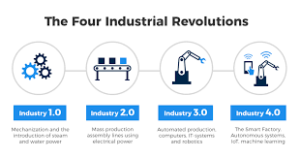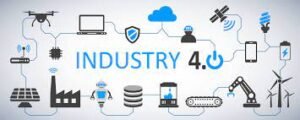Indian trade has long been known for its industrial progress. It’s time to acknowledge the efforts that have been made to get us to Industry 4.0 as we go in that direction. It is also crucial to recognise the difficulties we are facing with this adoption and how we could try to solve them.

Current Situation
We are currently living in the Industrial Internet of Things (IIoT) era, which goes beyond the Internet of Things (IoT), where linked processes make it simpler to identify inefficiencies and redundancies. For automated functions, processes and accountabilities are simplified. As we invest more time in research and development rather than execution-level adjustments, error margins continue to grow lower.

Industry 4.0
In this case, Industry 4.0 depends on a competent workforce that recognises the need for such automation and is willing to learn how to transition to duties that need their capacity for forward-thinking rather than task-based labour. Technology innovation, widespread internet access, and the expansion of a labour sector devoted to creating the infrastructure required for such 4.0 deployment have all made significant contributions to Industry 4.0.
Lastly, changing attitudes of a new-age consumer which is looking for a product and user experience on a solo medium, thus making data analytics and interpretation the norm instead of a specialized function in mass-experienced goods. This new consumer lifestyle has also been instrumental in bringing forth Industry 4.0 from manufacturing, to service, to entertainment, to edibles and much more.

Prime Minister Vision
The Prime Minister’s ‘Make in India’ initiative has become a veritable mission statement for Indian commerce and industry to wake up and smell the coffee. The steady change in attitudes, public discourse, and the professional interventions which sectors have taken to implement Industry 4.0 are welcome, but these are baby steps.
Initiatives Taken
Initiatives like Skill India and others must act quickly to improve their curricula so that students can do more than just learn about different job types or how to do them; they must also be able to incorporate ongoing innovation and sustained implementation of internet-based or internet-enabled technology to increase personal accountability and income potential. As we gradually transition to Industry 4.0, it is important to consider both the impact and the aim.
